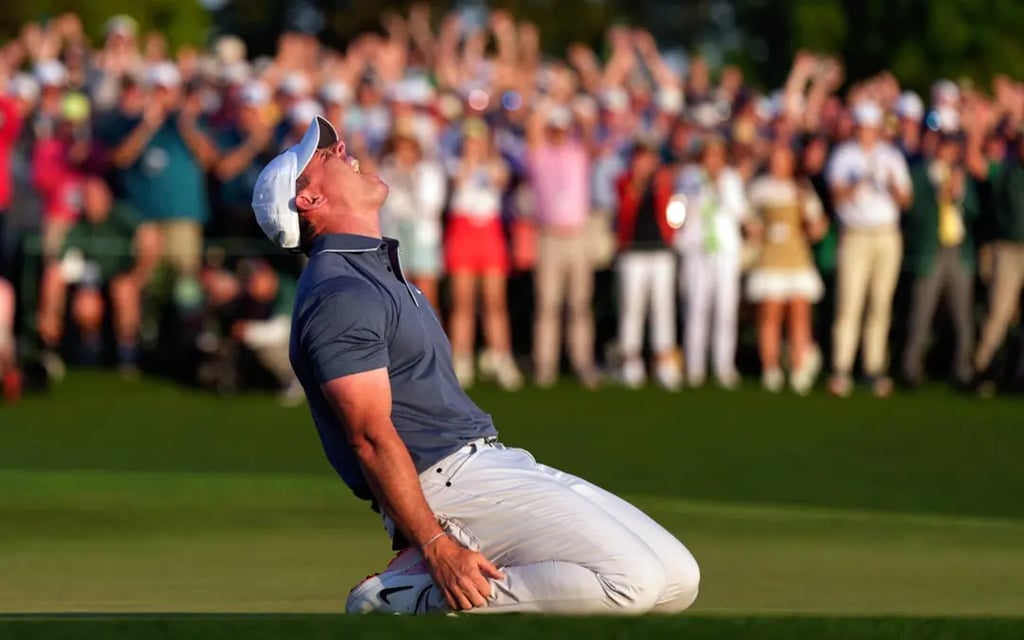Rory’s Inner Game: How Dr. Bob Rotella Helped Make Masters History
From confidence as a choice to mastering the art of emotional control, we explore the psychology that powered one of the most iconic wins in golf history.
Dan Lockwood
4/14/20252 min read


For a number of years, the thought around Rory McIlroy and the Masters Championship was a more a case of when, not if he would complete his career Grand Slam. As he broke through it was clear to most that he had the talent, technique, and over time the track record to achieve this feat. However, the Augusta National appeared to be his one stumbling block, year after year something didn't quite click. Until now. Rory McIlroy has officially won the Masters, and whilst a lot of headlines will focus on his technical performance, and of course, the iconic green jacket, what really stands out to me is how much of this win was mental as well as physical.
If you have much interest in either golf or sport psychology, you’ve probably heard of Dr. Bob Rotella. He is the go-to person when elite golfers look to improve the mental side of their game, with McIlroy beginning to work with Rotella in the lead up to Augusta in a move that seems like perfect timing. Rotella is big on process over outcome, trust the swing, trust your preparation, and remain in the moment, with the idea that you can’t force greatness. This is especially true when performing at Augusta. Prior to the tournament Rotella emphasised the importance of acceptance, accept bad shots, and be okay with not being perfect, allowing for an emotional balance when faced with adversity or unexpected outcomes.
After an 11-year drought in major tournaments, and 14 years on from a self-proclaimed ‘collapse’ in the final round of the 2011 edition of the tournament, it would be understandable if Rory McIlroy showed some level of the pressure getting to him. However, after producing a double bogey in the opening hole on the final day, he didn’t panic or try to overcorrect. Instead, he appeared to let go of the noise, the pressure, and over a decade of ‘almosts’ to bounce back and complete a playoff victory. And whilst it's difficult to know exactly what Rotella and McIlroy worked on to produce such a result we know from previous work that Rotella is a big advocate for mental reframing, and reinforcing that this is just another golf course, and just another round, a difficult technique yes, but incredibly beneficial in creating a new mental story.
Rotella often speaks of how confidence is a decision. You cannot wait for confidence to develop; you must actively choose it. And as difficult as some moments were for McIlroy across the four competitive days, his responses were rooted in confidence, again, and again. The level of composure Rory displayed after he missed the putt to secure victory was admirable. He could have easily spiralled into flashbacks of past ‘collapses’, but instead he refocused, and hit one of the shots of the tournament to take the game beyond Justin Rose in the playoff hinting that he has developed the mentality that separates the greats from the legendary.
What McIlroys Masters win shows is that mindset is a skill. It's trainable, adaptable, and ultimately essential. Talent alone didn’t win McIlroy the coveted green jacket. His willingness to improve the mental side of his game, and develop the ability to stay present, and trust himself appears to be what finally got him over the line. And is Rory can develop and require his mental game after over a decade of pressure and scrutiny, it serves as a reminder that the rest of us can do the same. Whether you're chasing a championship or just trying to find the motivation to head for your first run, or step foot in the gym, the tools are there, and they work.



